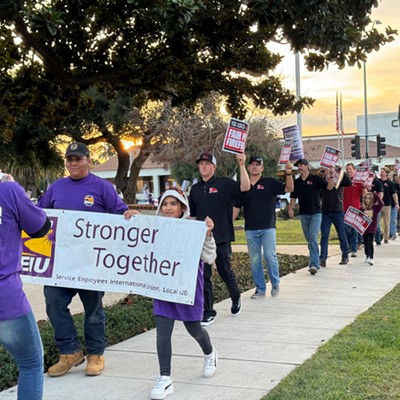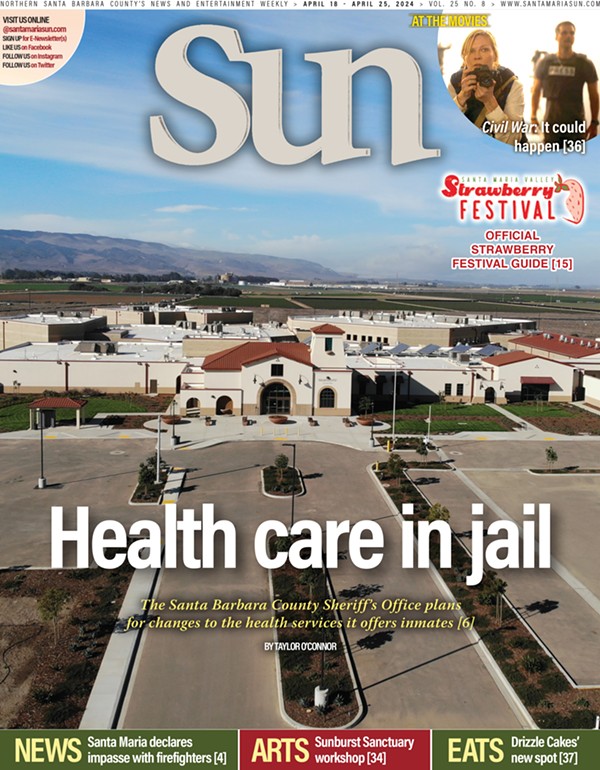Radio host Andy Caldwell’s recent paid advertisement in your paper is rife with presumptuousness, falsified claims, and outright lies about Katie Davis, 350.org, and the group’s intentions. It is markedly inappropriate that your staffers let this borderline libel slide. Instead of doing due diligence to the issues, Mr. Caldwell exploits the rapport he’s built with his audience by vengefully concocting disinformation and spouting it as fact. He talks as if he has the group all figured out but insists the group is shrouded in secrecy. Which is it? He slings words to put his target on the defensive and to stave off constructive dialog.
Because 350 takes government to task for leniencies granted to industrial polluters, Mr. Caldwell misleads his audience about the intentions of the group to create the misperception that their lifestyle is under attack. Friends, no one is concerned about your microwaves. Mr. Caldwell’s reliance on strawman arguments reveals the unverifiable nature of his claims, for it is easier to dismiss assertions no one is making than it is to dismantle overwhelming scientific consensus.
If Mr. Caldwell doesn’t understand why a grassroots group would not publicly disclose its meeting location, perhaps he is out of touch with what grassroots community organizing is. Had he bothered to send an inquiry before publicly denigrating Katie Davis and 350, he would have learned the simple explanation: the location changes. 350 Santa Barbara is comprised of family-oriented people, working professionals, churchgoers, and students, and does not have sponsorship or other funding by which to afford luxuries like an office or official meeting space. But Mr. Caldwell never bothered to e-mail or otherwise directly convey any of the preposterous accusations he guises as questions. If he had, it would have defeated his real purpose, that being vindictive public character assassination.
It is surprising to me that Mr. Caldwell wants to discuss credibility when just last November he published an opinion piece in the Santa Barbara News Press lambasting renewable energies and asking “can you imagine if any given industry was responsible for more than 1 million avian deaths per year?” The short answer is: Well, sure—the fossil fuel industry is responsible for more than 14 million avian deaths per year (Sovacool, Benjamin K. (2013). “The avian benefits of wind energy: A 2009 update”).
The 350 ppm upper limit for atmospheric CO2 is not Bill McKibben’s theory, as Caldwell claims. It is the result of careful and expert scientific study put into play after considerable deliberation by government officials around the world. This happened because there is no longer any debate among climate experts about the reality of manmade climate change.
An expert is a scientist with climate credentials who publishes in peer-reviewed scientific journals. This commonly implies a strong physics background. Though weather and climate are related, they are entirely different attributes, so climatologists do not generally consider meteorologists or news commentators to be climate-proficient to the degree that they can credibly deny the existing body of evidence. During the period between November 2012 and December 2013, 9,136 experts published peer-reviewed articles on climate. Only one rejected man-made climate change.
It is not arbitrary that the World Health Organization, the Center for Disease Control, the USEPA, and countless other government organizations, NGOs, and community organizations devote valuable time and resources to the issue. When one understands even the basic science it is not curious that the U.S. military views climate change as a threat to national security. Mr. Caldwell’s personal opinion that climate action means giving up microwaves is arrant fantasy that belongs only to him.
Mr. Caldwell deals in inane disinformation. Had he undertaken just a little bit of factual research on 350 Santa Barbara, he would know that 350 is unambiguously for growing jobs and a better quality of life. Development of renewable energy infrastructure offers more job opportunity than fossil fuel development, and at far less risk to communities. Just ask the 300,000 people in West Virginia who were left without water from a coal processing plant spill that has been deemed a federal disaster, is expected to hit Louisville, and has forced the entire 200 miles away city of Cincinnati to discontinue its use of Elk River water. It’s insult to injury for West Virginians who were forced onto a single water supply by an unchecked coal industry. Watersheds throughout West Virginia were previously poisoned by the coal industry, forcing residents to shut down their wells.
When Andy says it’s we who ask citizens to forsake their quality of life, I ask you to consider the quality of life lost by those in the Gulf fishing industry, the people of Baton Rouge, La., and Mayflower, Ariz., who have been unwittingly exposed to the powerful carcinogen benzene, the Texas landowners forced off their property by TransCanada, or the Houston residents whose children are growing up with chronic illness from air quality issues associated with refineries.
I encourage you to think critically, do your own research, and reach your own conclusions. Mr. Caldwell is betting you won’t, and 350 has confidence you will.
Colin Loustalot is a student of earth science and a member of 350 Santa Barbara. Send comments to the executive editor at [email protected].








